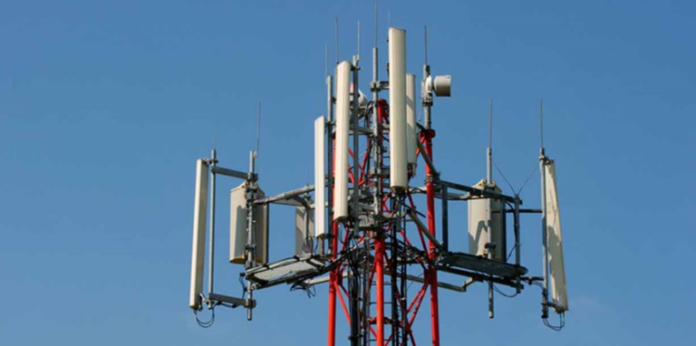Five Percent Telecom Tax: Desperate Revenue Drive or Deliberate Wickedness?By Vivian Abomann
TECHDIGEST – Taxation is one of best ways of generating revenue for countries all over world. Over the decades, Nigeria has been struggling to beef up her revenue from taxation but that has proven difficult due to policy limitations, corruption, lack of patriotism and the tendency for most Nigerians to try to cut corners.
Since 2015 however, the present administration has put together a couple of ground-breaking laws, policies and initiatives to expand the tax net, get millions of more Nigerians to pay taxes and beef up the country’s revenue base. From the time of Babatunde Fowler who headed the Federal Inland Revenue Service (FIRS) to the present leadership led by Muhammad Umar, trillions of naira have been generated in tax revenues for the federal government.
The FIRS in the year 2021 collected a total of N6.405 trillion in both oil (N2.008 trillion) and non-oil (N4.396 trillion) revenues beating the target of N6.401 trillion.
Companies Income Tax amounted to N1.896 trillion; Petroleum Profits Tax amounted to N2 trillion; Value Added Tax amounted to N2.07 trillion; Electronic Money Transfer Levy amounted to N114 billion; and Earmarked Taxes amounted to N208.8 billion.
Meanwhile, since the coming of Professor Isa Ali Pantami as Minister of Communications and Digital Economy and his team of experts, tax revenues from ICT and telecommunication have increased in multiple folds. This is due to the unprecedented reforms they brought on board.
Nigerians are being taxed and they are paying heavily. This must be the reason why the recent idea of extra five percent telecom tax has not been well received by the masses.
READ ALSO: Pantami to lead discourse at Nigeria Internet Governance Forum 2022
While the government through the Minister of Finance, Budget and National Planning, Zainab Ahmed, is willing to expand it’s revenue through the imposition of additional taxes such as the 5 percent excise duty on telecom services, they need to be wary of over-taxing people and taxing the poor masses to death.
In fact, any arbitrary imposition of such taxes on already impoverished masses could spell doom for the government as it can lead to some form of revolt or rebellion. Fortunately, to the delight of many, Prof Pantami recently announced the suspension of the 5 percent telecom tax.
He made the announcement during the inaugural meeting of the Presidential Committee on Excise Duty for the Digital Economy Sector in Abuja.
One of the reasons he gave was that the digital economy is already facing the problem of excess taxation and sometimes, multiple taxation. The minister therefore considered any other form of taxation as insensitive to Nigerians.
Unfortunately however, contrary to the pronouncement by the minister, the Director-General of the Budget Office, Ben Akabueze, said the issue was still on, that the federal government had not suspended it.
This has thrown spanner in the works as Nigerians thought they would heave a sigh of relief and escape what looks like a punishment from the government in the face harsh economy – high unemployment, underemployment inflation rate, poverty rate, low purchasing power, poor value of the naira etc.
I will use this opportunity to advise the federal government to listen to the wise counsel of Pantami and not do something that will deemed insensitive.
This crusade doesn’t mean tax is not important. Taxation is the bedrock of infrastructure development and Nigeria’s evolution in taxation is an interesting one.
During the 1970s and late 80s, attention was focused on oil revenue, so much that all the states in the country depended solely on revenue from the Federation Account. However, the dawn of global recession showed an intense fall in oil prices and by extension reduced revenue from the Federation Accounts, the overdependence on income from oil generated a disparity in the implementation of some of the fiscal policies.
Governments (Federal, State, and Local) began to look inwards, focusing on Internally Generated Revenue (IGR) as a sustainable means of funding as insolvency hovered among the states. The revenue accruing to the Federal Government of Nigeria from oil over the years has remained grossly insufficient to meet the growing social and public spending required in facilitating economic growth and infrastructural development in the country.
Hence, Nigeria employed taxation as an alternative to the source of revenue when crude oil revenue began to fluctuate. The contribution of taxation to all economies around the world cannot be overemphasised. Apart from the revenue function it performs for the government, it is also used to help the country achieve its macroeconomic goals in the areas of fiscal and monetary policies.
While I will conclude by urging Nigerians of taxable ages to pay their taxes as at when due and stop shortchanging themselves by hoarding monies that could be used to provide infrastructure, it is equally important for the federal government to stay action on the issue of extra five percent telecom tax as it is a very bad Idea that is coming at very bad time.
Vivian is a Mass Communication student at Ahmadu Bello University (ABU), Zaria.
















